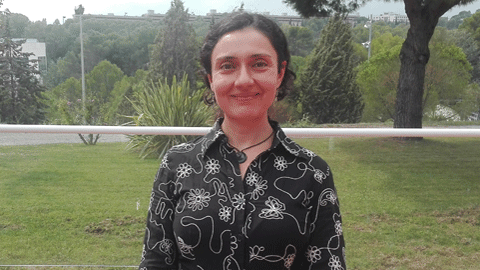Translator Yasmeen Hanoosh to talk on Iraq's minorities

13/09/2017
Yasmeen Hanoosh, professor at the University of Portland, will give a lecture on "Minorities in Today's Iraq: an interdisciplinary perspective" on 22 September at 11 a.m. ain Aula 4 of the Faculty of Translation and Interpreting. The conference, which will mark the beginning of the new academic year for the master's degree in Contemporary Arabic Studies, will by offered in Arabic with simultaneous interpreting. Also speaking will be UAB Vice Rector for International Relations Màrius Martínez and Dean Albert Branchadell.
Hanoosh holds a PhD in Arabic Language and Literature from the University of Michigan and specialises in literary translations from Arabic and Iraqi literature. She is expert in Arabic cinema and Middle EAstern minorities. Before the University of Portland, she lectured at the University of Michigan, the University of Virginia, Charlottesville, and Wellesley College, as well as at the Al Akhawayn University in Ifrane, Morocco, and the American University of Beirut, Lebanon.
Her translation into English of Closing His Eyes by Luay Hamza Abbas received a grant from the National Endowment for the Arts, while Scattered Crumbs by Muhsin al-Ramli was awarded the Arkansas Arabic Translation Prize. She has also published numerous translation in publications such as World Literature Today, Banipal and The Iowa Review. One of her texts was evel included in the anthology Literature from the Axis of Evil: Writing from Iran, Iraq, North Korea and Other Enemy Nations.
A Pioneering Project in Europe
The main objective of the master's degree in Contemporary Arabic Studies is to offer high-quality training in the language, culture and societies of contemporary Arabic countries with the aim of meeting the growing sociual and institutional needs in regional experts. Offered fully in Arabic, the master's degree represents a pioneering academic project in Europe, open to international students with notions of the language and interested not only in becoming experts in today's Arabic world but also in acquiring a C2 level of the Common European Framework of Reference for Languages.
More information:
Master's Degree in Contemporary Arabic Studies